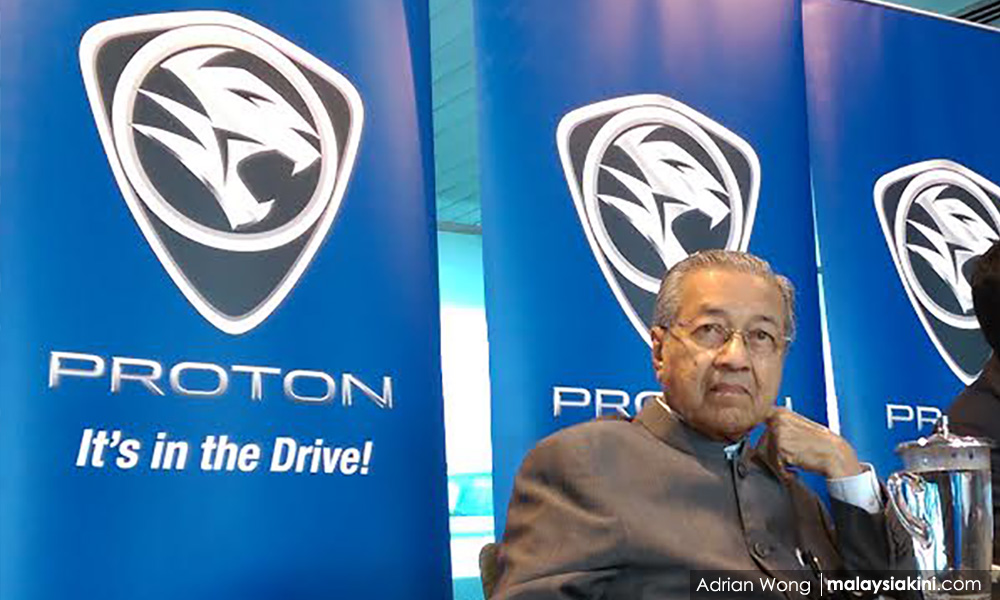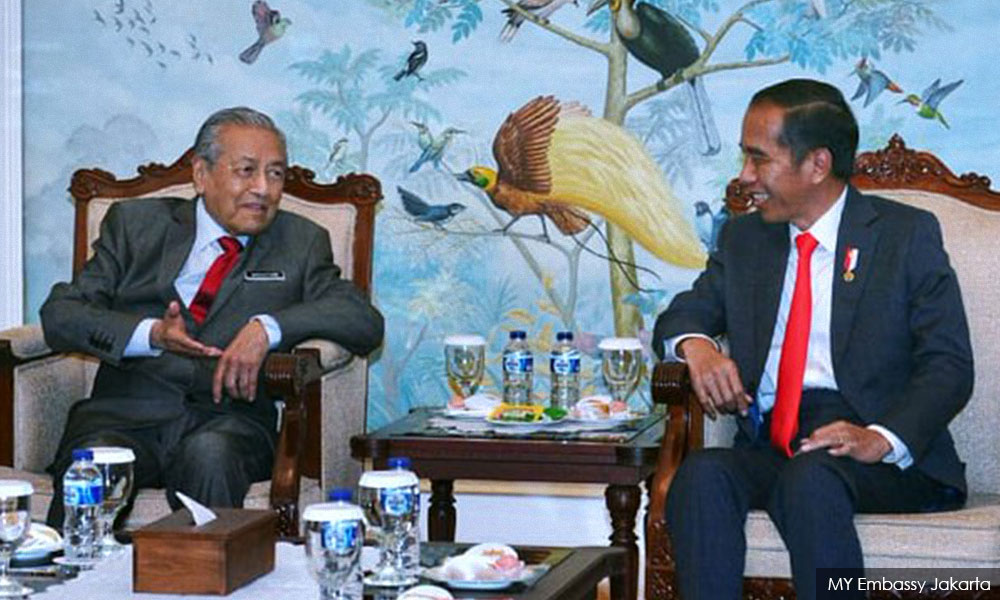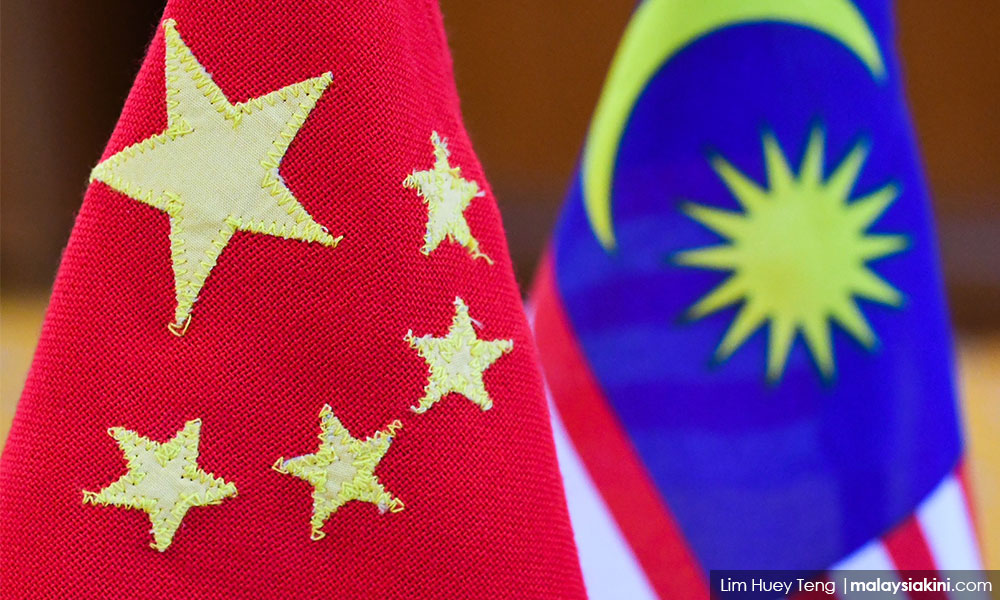COMMENT | Dr Mahathir Mohamad has always been a strong articulate man in a hurry. When he became the fourth Prime Minister of Malaysia in 1981, he was already 56.
He once lamented to an interviewer that he wished he was the prime minister sooner. Not because he was crazy about power and the trappings of office, but the possibilities availed by the industrial revolution of the post-World War II.
In his trip to Japan in the early-60s, Mahathir was able to witness (literally) the rise of the proverbial Phoenix. From the ashes of Hiroshima and Nagasaki, Japan had already risen up and was ready for the world when it hosted the 1964 Tokyo Olympics.
In a short two years, Tokyo will once again host the 2020 Olympics, at which point, Mahathir, with the grace of God, would have completed the halfway point of his five-year tenure.
In his current trip to Fukuoka, the second in almost 100 days, Mahathir may appear overly enthusiastic about Japan.
Yet, such a reading would be completely wrong for three reasons. To begin with, Japan has entered a post-industrial phase of its revolution. The technology with which it specialises in has reached a range where Japan can compete in anything from nano to nuclear technology.
In the automobile sector alone, Japan, not unlike Tesla, is racing ahead with an electric car to reduce emissions.
In fact, economist KS Jomo, having been a constructive critic of Japanese Incorporation, affirmed recently that an emphasis on an electric car would be consistent with the broad strategic trends – should Mahathir insist on joining the race to build a car from scratch, having witnessed the failure of Proton.

However, Mahathir's delegation to Japan does not include Science, Technology, Climate Change and Environment Minister Yeo Bee Yin. Rather it includes Transport Minister Anthony Loke and Education Minister Maszlee Malik, neither of whom have been known to be familiar with the trajectory of any major technological breakthrough in technology.
Taking a middle path
Thus Mahathir is taking a middle path: he knows Malaysia is not in the same league as Japan as yet, but Malaysia does want to get there. Human capital and a transportation plan that can enhance Malaysia's standing in the region are therefore an absolute must.
To be sure, Mahathir wants to create a car, with the help of Japan, that can break into the whole of the Asean market, perhaps, with the collaboration of President Joko Widodo of Indonesia as well.
Such a plan is not far-fetched, to say the least. But it does entail certain risks. To be sure, research by the Asian Development Bank Institute in Tokyo shows that the number of middle-class consumers in the region can reach 700 million people in total by 2050.
This is twice the figure of the middle class of China, and the combined total of the middle class of China and India currently.
If the boom in China and India has helped to raise the welfare of the entire Asian and South Asian continent, Mahathir believes the technology gained from a third national automobile can benefit Malaysia and the rest of Asean.
Nevertheless, the risks involved the joint concentration of the special skill sets of Malaysia and Indonesia, which must be constantly harnessed by all the ministries of the two countries well into 2050. It is a long game.

To prevent any cataclysmic business failure, Malaysia and Indonesia have to raise the ante several folds, not just between two or three ministries but across the whole phalanx of the respective governments.
Not unless Indonesia's public and private sector can buy into the concept of a Malaysian or Malaysian and Indonesian made car – ideally electric – Putrajaya should venture into the car making industry with real extreme caution.
Giving incentives and providing a subsidy to the third national car, for instance, could involve an infringement of the competition rules of the World Trade Organization (WTO) and potentially the Asean Economic Community and the Regional Comprehensive Free Trade Agreement too.
Thus the legislative aspect of a third national car must be looked into, without which it could skew the prior commitment of the Trade and International Industry Ministry.
Come what may, should Malaysia proceed with the electric car, this is also Japan's last chance to be a regional leader in Asean, granted its shrinking population and greying society. Why is this the case?
For what it is worth, friendly, democratic and clean political leaders like Mahathir and Widodo are hard to come by in Asia.
A friendly coalition of three Asiatic powers
Now that they are a pair, Japan should build up Malaysia and Indonesia together. But not as a countervailing power against China. Rather as a friendly coalition of three Asiatic powers to work with China.
In the same vein, Japan cannot keep relying on Malaysia and Indonesia to forge (a path) ahead. Japan has to learn how to manage its rivalry with China too.
Tokyo must know Malaysia and Indonesia are both trying to Look East, not choosing Japan over China. And, if both Mahathir and Widodo are doing so, Japan must know how to calibrate its relationship with China as well, to prevent Malaysia and Indonesia from having to choose between China and Japan.

For what it is worth, the Japanese ambassador to Malaysia Makio Miyagawa recently affirmed that "Japan can allow China to lead too," especially if China does not resort to using military power and a large amount of debt to exert its influence across the region.
This is the clearest sign (as yet) that Japan can co-exist with China; on the proviso that a win-win solution is found by both countries across the region.
With Mahathir leading the way, Malaysia can clear a path to allow Japan and China to gain from Asean's embrace of all forms of an automobile or high technology
But if Japan loses this chance, to embrace the enthusiasm of Mahathir and potentially Widodo too, the top officials in Kasumigaseki in Tokyo should indeed be saying sayonara to Asean. They would have no one but themselves to blame.
In this context, what Japan should be doing is a keen appreciation of how or what Japan can do in relation to Malaysia's strategic plan to reduce its national debt that is now at US$250.6 billion (RM1,023 billion).
A strong package of low-interest loans would allow Malaysia to offset and retire some of its national debts that are pegged to higher interest.
Such a gesture would signal to other leaders in Asia that Mahathir's diplomacy can provide a strategic alternative to a total reliance on China. China, in turn, can breathe a sigh of relief too that it does not have to keep forking out its hard-earned national reserves to bail other countries out.
RAIS HUSSIN is a supreme council member of Bersatu and the head of its policy and strategy bureau.
The views expressed here are those of the author/contributor and do not necessarily represent the views of Malaysiakini.

